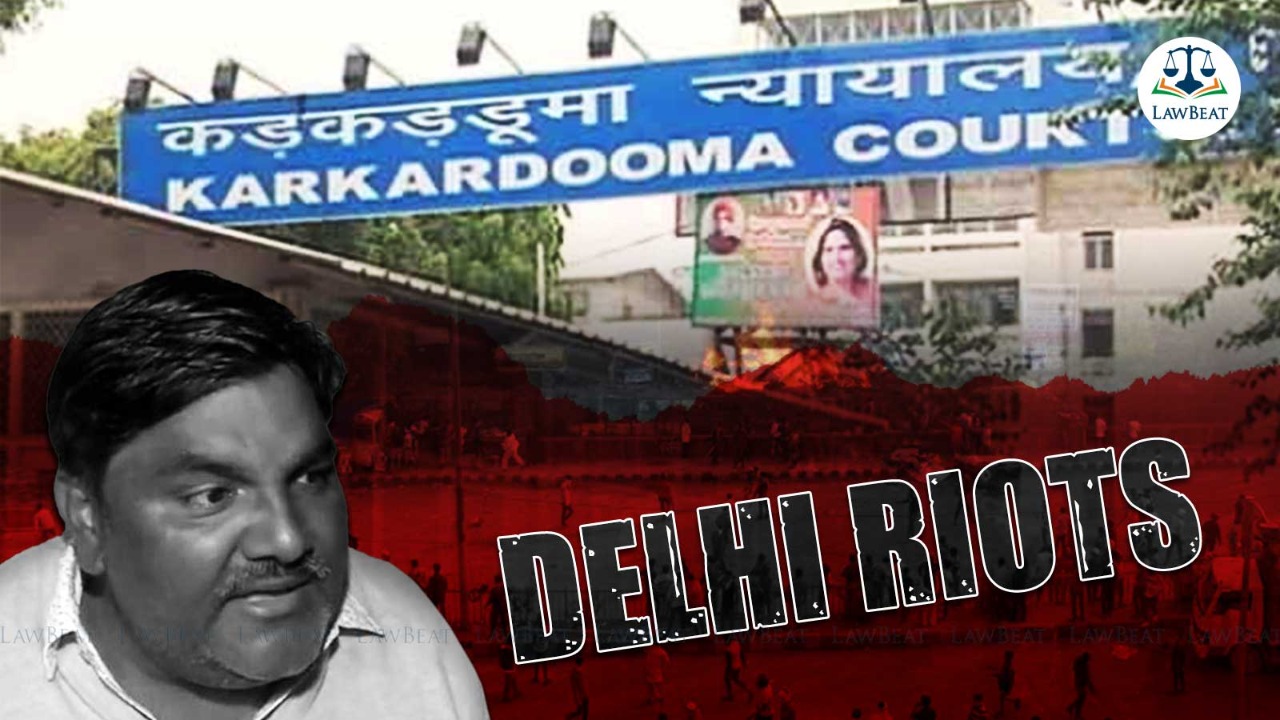Delhi Court Grants Bail To Tahir Hussain In Money Laundering Case

Per the prosecution, Hussain was involved in criminal conspiracy, document falsification, and financial fraud. Allegedly, he directed significant cash withdrawals from various companies, amounting to Rs. 5.24 crores, of which Rs. 1.5 crores were linked to anti-CAA protests and communal riots in North East Delhi.
The Karkardooma Court, recently, granted bail to Tahir Hussain for his involvement in a money laundering case. The bench of Additional Sessions Judge Sameer Bajpai held, “The court concludes that as the applicant has undergone detention of more than one half of the period of imprisonment, as provided for the offence allegedly committed by him, he is entitled for bail”.
Hussain’s counsel argued that he had not generated or unlawfully acquired proceeds from the scheduled offenses. The defense further submitted that he had been in judicial custody for over four years, while the maximum prescribed sentence for the alleged offense under Section 4 of PMLA was seven years. Since he had already completed more than half of this period in custody, he sought bail under Section 436-A of Cr.P.C.
Additionally, the defense contended that the trial depended on the outcome of the predicate offense cases, and in FIR No. 59/2020, even charge framing had not taken place. Given the prolonged proceedings, further delay was anticipated. The defense maintained that the court could not deliver a final verdict in the PMLA case unless Hussain was convicted for the predicate offenses, making his continued detention unjustified. His prolonged custody was also cited as a violation of Article 21 of the Constitution of India.
The prosecution opposed the bail application, arguing that FIR No. 59/2020 had been registered against Hussain under multiple sections of the IPC, including 147, 148, 149, 120B, 34, 201, 302, 307, and 385. FIRs No. 65/2020 and 88/2020 also implicated him in serious offenses. The prosecution emphasized that Sections 120B, 302, 307, and 385 IPC were scheduled offenses under the PMLA, warranting an inquiry into Hussain’s role.
The prosecution contended that Hussain could not claim relief under Section 436-A Cr.P.C., as the proviso permitted extended detention due to the gravity of the offenses and multiple FIRs. The prosecution also accused Hussain of causing trial delays by seeking repeated adjournments, amounting to a total of 463 days.
The court first noted that, “The court has already observed that in the case in hand, the delay on the part of the applicant is approximately for 241 days and excluding this delay, the applicant has already undergone more than four and half years of imprisonment”.
The court examined whether Hussain qualified for bail under Section 436-A Cr.P.C. The law generally mandated bail if the accused had served more than half of the maximum sentence, except where the court provided recorded reasons for continued detention.
Citing various judicial precedents, including Vijay Mandal Choudhary vs. Union of India, [022 SCC OnLine SC 929], the prosecution argued that economic offenses fueling communal riots required stringent consideration. However, the court emphasized the Supreme Court's opinion that an accused could be denied relief under Section 436-A if trial delays were caused by him.
“Thus, when the Hon’ble High Court of Delhi has already dealt with the similar matter and given the observation that there was no justifiable reason with this court which could have compelled the court from granting the relief to the accused, this court has to follow the ruling of the Hon’ble High Court and in no way can form any other opinion”, the court observed.
The court therefore granted bail to Tahir Hussain noting, “Accordingly, the applicant Tahir Hussain is granted bail on furnishing a personal bond of Rs.50,000/- with two sureties in the like amount”.
Case Title: Assistant Director E.D. v Tahir Hussain
